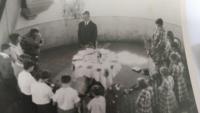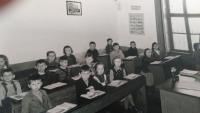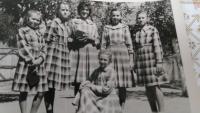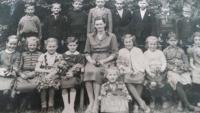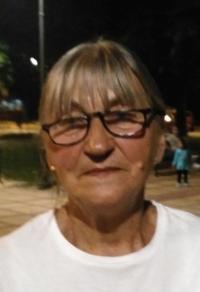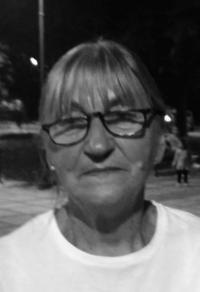Czechs gathered around the church and the school and stuck together
Zdenka Tesařová was born on 2 December 1948 in Veliko Središte in the former Yugoslavia as the oldest of five daughters in the Kocab family. She left Veliko Središte to study a teachers’ institute in Celje in Slovenia (a Yugoslav union republic at the time) and went on to study in Vršec in Banat one year later. Having completed her studies, she found a job in the nearby Češko Selo where they were seeking a teacher who knew Czech. Her career then took her to Dupljaj and Kusić. She spent the final years of her teaching career in Bela Crkva. She is retired now. She first visited the Czech Republic when in retirement but she spoke Czech all her life.


